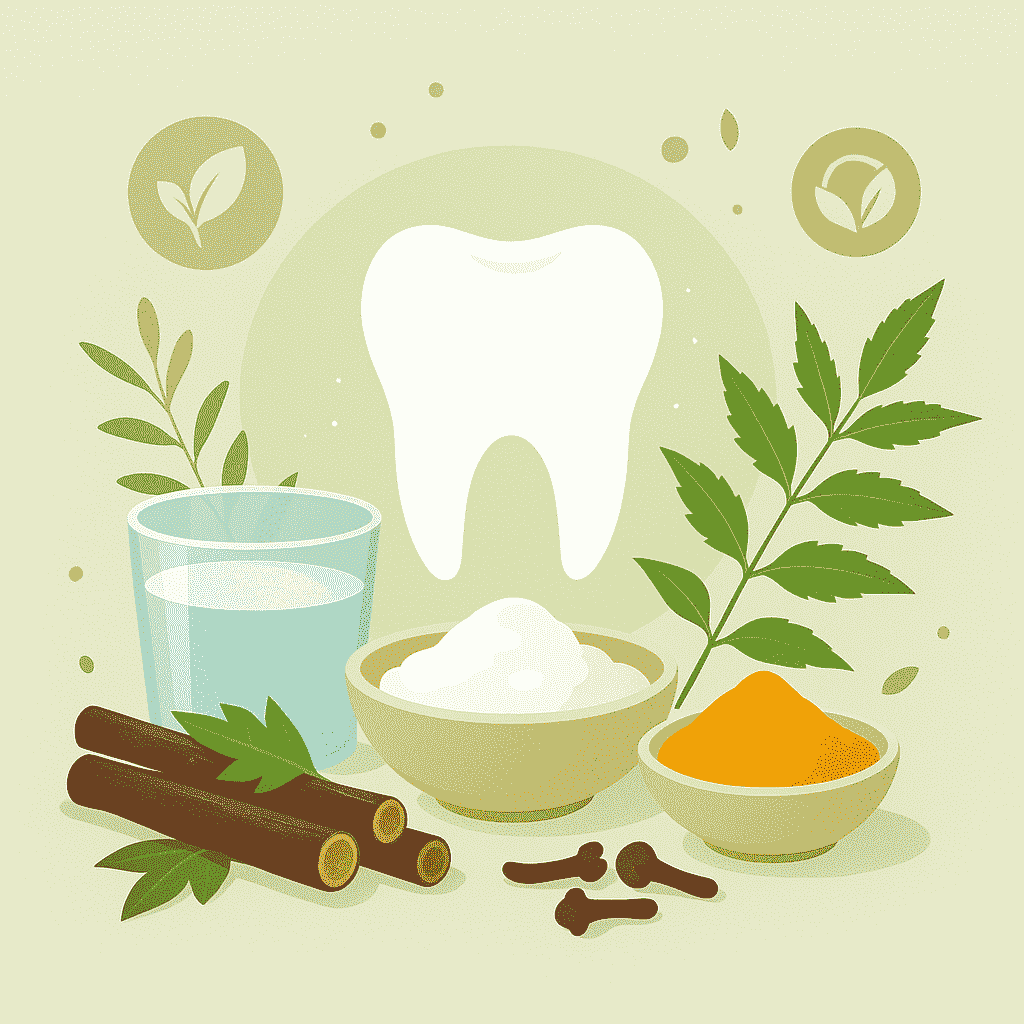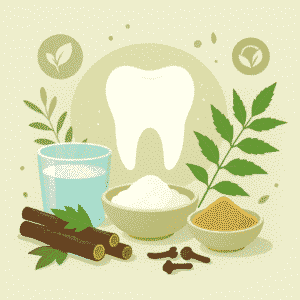Natural remedies for strong teeth and gums
Maintaining healthy teeth and gums isn’t just about a bright smile—it is about overall well-being. In India, gum problems, cavities, and sensitivity are common due to high sugar intake, tea consumption, and lifestyle factors. While modern dentistry is essential, many families still rely on Natural remedies for strong teeth and gums that are rooted in Ayurveda and easily found in Indian kitchens.
If you follow simple Daily Oral Hygiene Habits along with natural care, you can strengthen your teeth, prevent gum disease, and improve oral health naturally. And if you ever need professional support, consulting the Best Dentist in Gariahat or the Best Dental Clinic in Dhakuria can complement these home remedies effectively.
Recent data highlights the urgency of maintaining strong oral hygiene. A national survey, “90% of Indians Suffer Dental Issues, but Only 9% Visit Dentists,” found that nearly 41% are at high risk for cavities and 44% for gum disease, yet only a small fraction of the population actually visits the dentist regularly. Another study by AIIMS Delhi shows that good oral hygiene doesn’t just protect your teeth — it can also reduce cancer risk and improve overall health, especially in head and neck cancers. These findings underscore why Natural remedies for strong teeth and gums and consistent Daily Oral Hygiene Habits are more vital than ever.
Why choose natural oral care?
Natural oral care offers a safe & chemical-free approach, is cost-effective, draws on Ayurvedic heritage, and tends to be more sustainable than many commercial products. These benefits make natural remedies for strong teeth and gums an attractive complement to modern dentistry.
Key advantages
- Safe & chemical-free: Fewer harsh additives than some toothpaste/mouthwashes.
- Cost-effective: Many ingredients are found in the kitchen.
- Ayurvedic heritage: Centuries of practice in Ayurvedic dental care in India.
- Sustainable: Low-waste and eco-friendly options.
Recent surveys and research indicate a high prevalence of oral problems in India — combining natural care with good daily habits can reduce inflammation, bleeding, and the risk of cavities.
5 Natural Remedies from Indian Kitchens for Stronger Teeth and Gums
1. Clove (Laung) — Gum pain relief
Why: Clove contains eugenol, an antibacterial and pain-relieving compound.
How to use:
- Chew a whole clove to ease short-term pain.
- Apply clove oil diluted with coconut oil gently to the affected gum area.
Benefit: Reduces bacterial growth and soothes gums.
2. Turmeric (Haldi) — Anti-inflammatory care
Why: Turmeric is antibacterial and anti-inflammatory, useful for gingivitis.
How to use:
- Mix turmeric with a pinch of salt and mustard oil to make a paste; massage gently on gums.
- Or use cooled turmeric water as a mouth rinse.
Benefit: Helps reduce plaque and gum inflammation.
3. Neem — Traditional teeth cleaning
Why: Neem has powerful antibacterial properties and is a traditional oral-care ingredient in India.
How to use:
- Chew a fresh neem twig (datun) in the morning as a natural brush.
- Boil neem leaves and use the cooled water as a mouth rinse.
Benefit: Fights germs, helps prevent cavities and bad breath.
4. Salt water rinse — Simple, effective
Why: Salt balances oral pH and speeds healing of minor gum sores.
How to use: Gargle with warm salt water after meals.
Benefit: Reduces swelling and kills bacteria.
5. Oil pulling with coconut oil
Why: An Ayurvedic practice believed to remove toxins and reduce plaque.
How to use:
- Swish 1 tablespoon of coconut oil in your mouth for up to 10 minutes before brushing.
- Spit out and rinse with warm water; then brush as usual.
Benefit: Helps prevent cavities and improves breath freshness.
Additional Daily Oral Hygiene Habits
- Brush twice daily with a soft-bristled brush.
- Use a tongue scraper to remove bacteria.
- Floss regularly to clean between teeth.
- Limit sticky sweets and sugary drinks.
- Stay hydrated to maintain saliva flow.
Tip: Combine small daily practices with natural remedies to get the best results. If you are unsure how to strengthen teeth and gums naturally at home, start simple and be consistent.
Myths vs Facts About Oral Hygiene in India
Fact: Hard bristles can damage enamel — use a soft brush.
Fact: Betel nut causes gum disease and raises oral cancer risk.
Fact: Flossing and tongue cleaning are equally important.
Professional dental support with natural care
Natural remedies are supportive but not a replacement for clinical care. Regular check-ups help detect issues early. If you’re in South Kolkata, consider consulting the Best Dentist in Gariahat or the Best Dental Clinic in Dhakuria to combine professional expertise with Ayurvedic dental care in India.
Oral health impacts total health — studies link good oral hygiene with lower risks for certain systemic conditions, including head and neck cancers.
FAQs
Q1: What Indian foods cause the most tooth decay?
Q2: Is jaggery better than sugar for preventing cavities?
Q3: How to prevent cavities in India with daily habits?
Q4: Should children in India use fluoride toothpaste?
Q5: How often should I visit a Dentist in Behala for a check-up?






